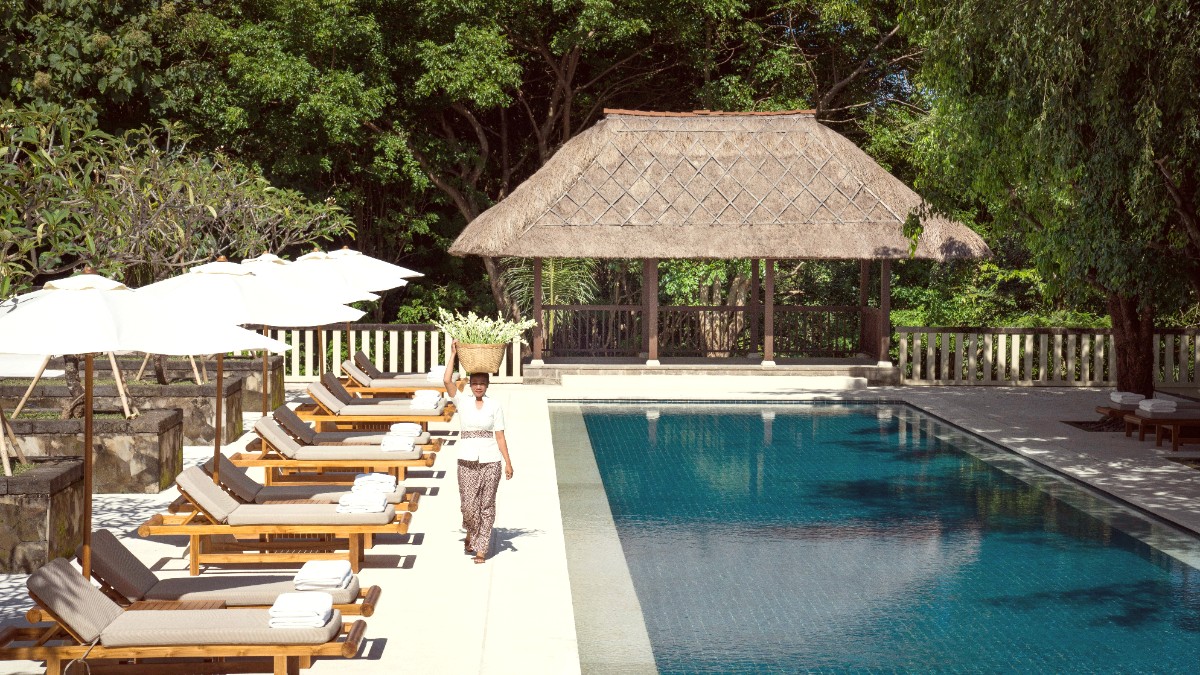
Indonesia
The dry season (April to October) brings sunny days, lower humidity, and minimal rainfall. Temperatures typically range from 26°C to 31°C (79°F to 88°F). Skies are often clear blue.
The wet season (November to March) brings higher humidity and more frequent rainfall. Rain often arrives in short, heavy bursts, typically in the afternoon or evening, followed by sunshine. Temperatures stay warm.
Bali does not experience hurricanes. Wet season rains are generally not continuous, often clearing quickly after tropical downpours.
For optimal conditions for beach activities, aim for the dry season. Cultural exploration is rewarding year-round.
For ASEAN citizens. Stay up to 30 days, non-extendable.
Must be valid for at least 6 months from entry.
Show a confirmed return or onward ticket.
For citizens from over 90 countries (e.g., US, UK, Australia, Canada, EU).
Valid for 30 days, one 30-day extension possible.
Apply online before arrival for faster airport process.
For stays over 60 days or non-tourism purposes.
Obtain from an Indonesian embassy or consulate in your home country.
Complete electronic customs declaration (e-CD) online before arrival.
IDR 500,000 (approximately $32-35 USD). Payments accepted in Rupiah, major foreign currencies, or credit card.
VoA holders pay first, then proceed to immigration. E-VOA holders go straight to immigration.
Valid for at least 6 months from entry.
Proof of departure from Indonesia.
Advised to carry evidence to cover your stay.
Electronic customs declaration via official website.
Needed if from or transiting high-risk countries.
Plan your budget for a Nusa Dua trip effectively. Costs vary significantly based on your travel style, from a budget-conscious approach to a luxurious indulgence.
The Indonesian Rupiah (IDR) is the official currency. Check current exchange rates.
Ride-sharing apps (Grab/Gojek) are generally cheaper than metered taxis.
Daily cost estimates vary based on your selected travel style.
Prioritize your well-being when traveling to Nusa Dua.
Ensure routine vaccinations (MMR, DTP, Polio) are current.
Hepatitis A and Typhoid are general recommendations.
Rabies advised for long-term travelers or animal contact; Japanese Encephalitis for extended rural stays.
BIMC Hospital Nusa Dua: Reputable international standard hospital within Nusa Dua, offering 24/7 emergency services.
Siloam Hospitals Denpasar: A larger hospital 30-45 minutes away.
Pharmacies (Apotek) are easily found for common medications.
Emergency Numbers: General: 112, Ambulance: 118, Police: 110, Fire: 113, Search and Rescue: 115.
Drink only bottled or purified water. Avoid ice unless sure of filtered source. Eat thoroughly cooked food, peel fruits yourself. Maintain good hand hygiene.
Mosquito-borne illness prevalent year-round. Use effective insect repellent (DEET or Picaridin) day and night. Wear long sleeves and pants at dawn/dusk.
High UV index. Use high-SPF sunscreen, wear hats/sunglasses, seek shade during peak sun hours (10 AM - 3 PM). Stay well-hydrated.
Nusa Dua is one of Bali's safest and most secure areas. Its gated resort complex (ITDC) features dedicated security patrols.
Pack a small, targeted kit to address common travel ailments and unexpected situations.
Pain relievers, antiseptic wipes, bandages, medical tape. Anti-diarrhea medication (e.g., Imodium). Antihistamines for allergies or insect bites. Hydrocortisone cream for skin irritations. Electrolyte packets for rehydration.
Carry all prescription medications in original packaging. Bring a copy of your prescription and a doctor's letter explaining the need for the medication, especially if it is a controlled substance.
Pack remedies for colds, flu, and motion sickness pills if you plan boat trips or winding road travel. Altitude sickness is not a concern for Nusa Dua itself.